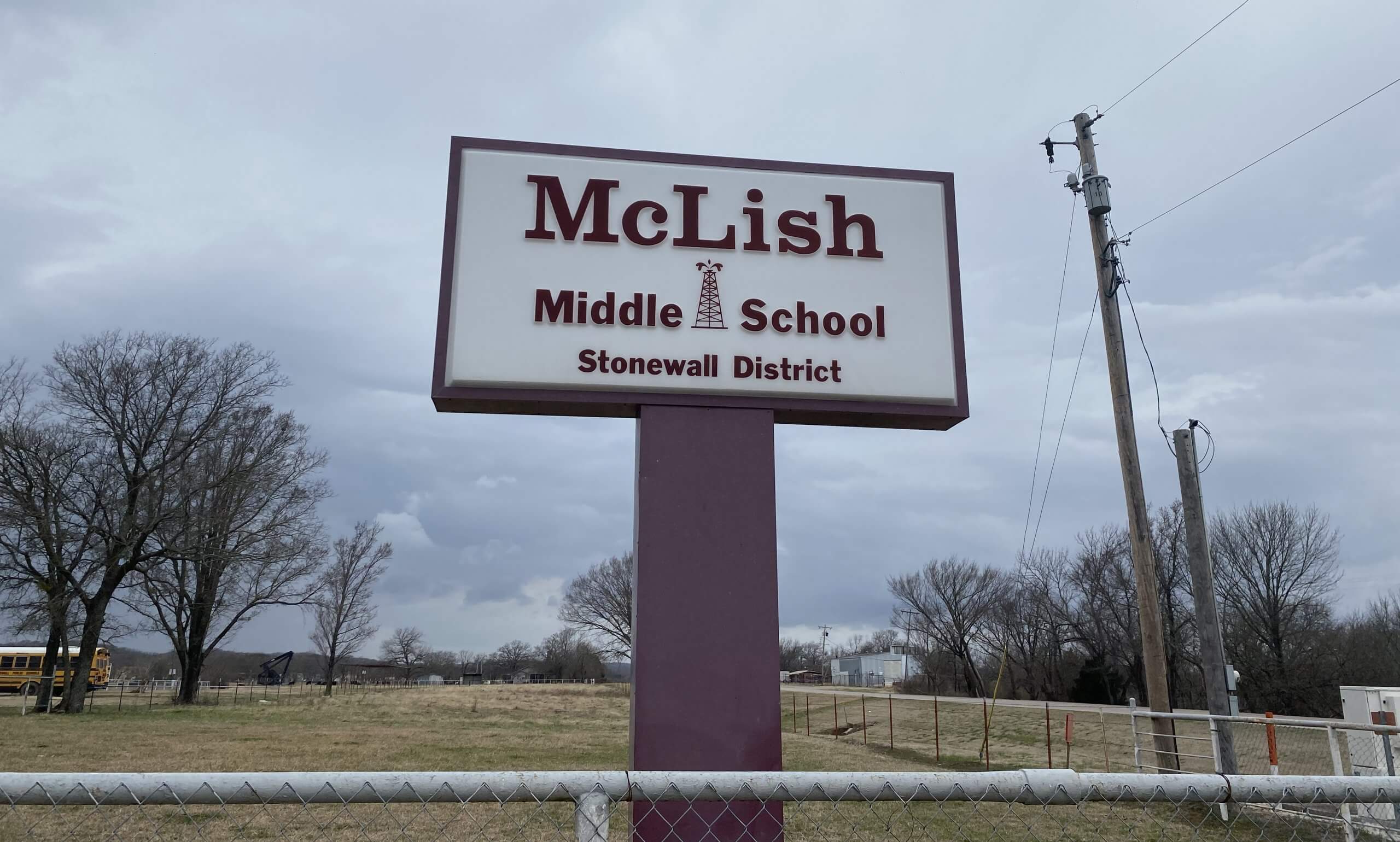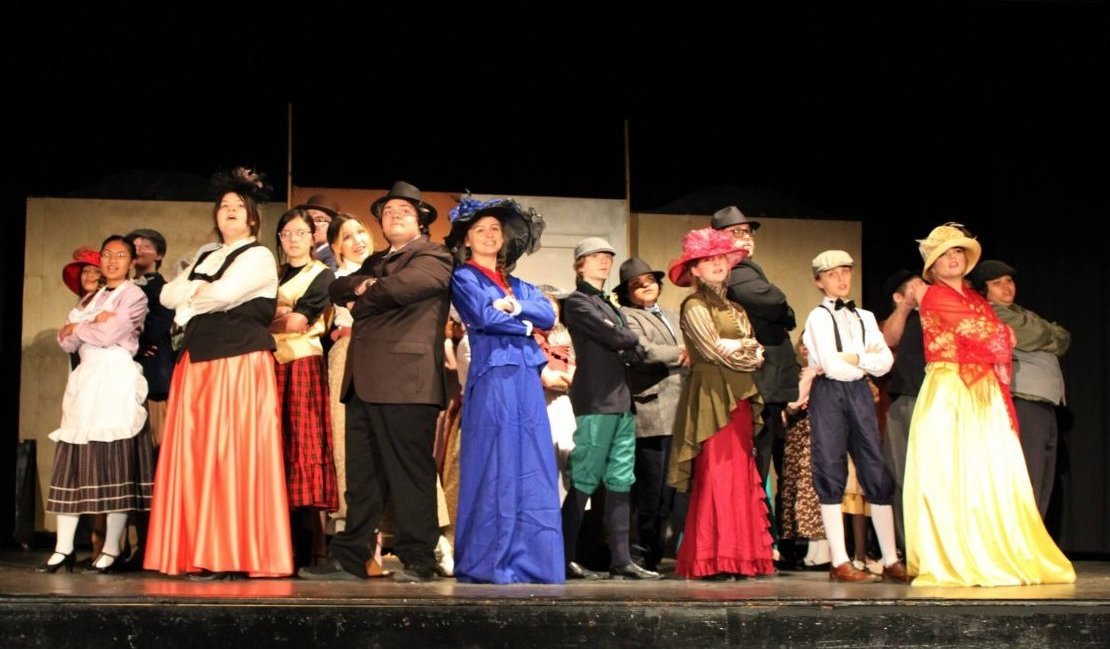

STONEWALL — For superintendents and other education leaders, the challenges of operating rural Oklahoma schools can range from major budgeting decisions to more finite questions about who will drive the bus for a student activity.
At three rural districts in southeast Oklahoma, superintendents say efficiency in faculty roles and strong community relationships have been keys to ensuring student success.
“I’m a small-school product, and I prefer the small setting,” said Superintendent of Stringtown Public Schools Tony Potts. “You have to wear a lot of different hats, but the close-knit family atmosphere means more to me than numbers.”
Stringtown, Stonewall and Sulphur public schools serve smaller student populations in rural settings of the state. Of the three, Stringtown has the smallest total community population of 372 people, with 5,023 Oklahomans calling Sulphur home.
Stringtown Schools has an average enrollment of 235 students, which Potts said isn’t uncommon for rural school districts in the state.
Potts has been with Stringtown Schools for four decades, and his father worked in the district for 33 years, serving as a coach, math teacher, principal and superintendent during his career.
“I kind of followed in his foot steps,” Potts said. “I’ve been a coach, a history teacher, a principal and the superintendent. This is my 20th year as superintendent and 40th year overall.”
With 22 certified and 13 non-certified faculty members, Potts said a big key in the district’s ability to thrive is through the efficiency of faculty roles.
For example, Potts said a larger school district may have three different people fill the positions of curriculum coordinator, textbook coordinator and Title I coordinator.
“I’ve got one person that’s my text book coordinator, my curriculum coordinator and my Title I coordinator, and on top of that, she’s my librarian,” Potts said. “But it’s not uncommon for small schools to have those types of people.”
The “get it done” attitude extends to the district’s principal, Cory Lowry, who Potts said will help handle everything from curriculum alignment to fueling up school buses in the morning.
“That’s one of the things that I like about the small schools. Very seldom do you get an employee who says, ‘That’s not my job,'” Potts said.
Potts holds dual roles as well as, serving as the golf coach and driving students to the golf course about eight miles away in Atoka for practice.
“I love these kids and the opportunity to be able to do something that a lot of other small schools may not have the opportunity to do,” Potts said.

‘It’s a special situation’
Potts, who served as a high school principal in the 1990s, also said the smaller size of Stringtown’s community has provided him with the opportunity to be more aware of student needs. He knows everybody that lives in the district, including their grandparents, great-grand parents and even their pet’s names.
“You know your community, and I think that’s something that makes us unique compared to the larger systems. I’m really in tune with the people in the community and what their wants and needs are,” Potts said. “In the larger systems, it’s not feasible for the superintendent to know what every bus stop is. It’s not feasible for him to know every parent that’s in his community. When you know every child’s name that’s in your school, it’s a special situation.”
Potts said the district also thrives from community support. Some of that community support is evident through the expansive gymnasium that holds the superintendent’s office and facilitates basketball games, graduations and other community events.
Potts said the $1.4 million facility was funded through a $1.9 million bond issuance, a $600,000 FEMA grant and donations from business leaders and banks in the community.
“Latimore material donated close to 2,000 loads of 10-wheeler dump truck materials for free. Our county commissioners came in and got it leveled and packed,” Potts said. “It was the collaboration of a community effort to even be able to get into this facility.”
Follow @NonDocMedia on:
‘You have to be an expert in a million different things’

Another special situation can be found about 40 miles west of Stringtown at Stonewall Public Schools. The district is currently undergoing a transition as Superintendent Kevin Flowers prepares to retire after 17 years.
The incoming superintendent and current principal of McLish Middle School, formerly a K-12 district annexed by Stonewall Public Schools in 2005, Greg Lovelis has deep connections to his district as well. He spent 11 years as a science teacher with the district and has spent the past five as a principal of McLish.
“The outgoing superintendent, Mr. Flowers, was my coach at Stonewall from seventh grade through 12th grade,” Lovelis said. “Incidentally, he came back as superintendent the year I finished schooling and hired me. I wanted to teach in my home school, and it was because of that relationship between him and I. He became sort of a father figure for me.”
Lovelis has held his share of dual roles in his time with Stonewall Public Schools.
“Prior to administration, I [always drove] a school bus. In fact, I drove the bus home,” he said. “I still hold my bus certificate. It’s not uncommon in small schools for the superintendent to go drive the bus when they need to. You can’t say, ‘That’s not my job,’ because the kids have to get home. As I move into that role as superintendent, I’m going to keep my bus certificate, my bus license and tell my transportation guys, if they need me, I’ll step up.”
When taking on his first year as principal of McLish Middle School in 2016, Lovelis said he was very conscious about the appearance of the campus.
“It just didn’t look up to par for me for what the kids deserved for their first day of school,” he said. “I called two guys who worked at the other campus and said, ‘I need some help, will you meet me at McLish at 6 a.m.? I’m going to bring my weed eater, and we’re going to get this place looking good.'”
Lovelis said in a small school district like Stonewall, it’s just what you do.
“I’ve been around bi- time superintendents, and their world is just totally different,” Lovelis said. “At a small district, you have to be an expert in a million different things from legal issues, to finance, to human resources. You’re the janitor, you’re the window washer, you’re the guy who throws out salt when the sidewalks are icy. All of those different things that we just step up and get done when we have to.”
‘You have to raise kids that are going to want to come back’

While Sulphur Public Schools has a larger student population than Stonewall and Stringtown, Superintendent Matt Holder said the rural setting of Sulphur’s location also makes community relationships critical.
“There’s a huge impact with the Chickasaw Nation here,” Holder said. “They’re great supporters of education. The nation really understands the importance of education. Anything we’ve ever asked for, anything we’ve needed, they make it happen.”
The encouragement Holder has seen his students receive from community members at large over his past two years as superintendent impresses him. On Friday nights during football season, the town practically shuts down.
“Like most schools in rural Oklahoma, athletics are a big deal,” Holder said. “It brings the community together, and I think that’s one thing that’s pretty cool about athletics in a small town. Just seeing how many people come out on a Friday night, and they might not even have a kid out there playing.”
As the baseball team wrapped up an afternoon practice ahead of a March 11 game against Durant, the team’s baseball coach Robert Thomas touched on the support he witnesses for his players.
“We’ve got great support and great attendance,” Thomas said. “Our baseball and softball teams are self-sufficient. It’s all supported off of the concession stand and attendance.”

Sulphur Public Schools vocal director Paula Scott said this community support extends to the district’s art programs as well. She expanded on this support as she prepared for her students’ dress rehearsal for their spring production of the Music Man.
“Sulphur is a smaller community, and in smaller communities we tend to see a little more support for the arts programs,” Scott said. “Kids in these schools aren’t just focused on one activity. We might have someone who is quarterback on the football team and also in the arts programs.”
Scott started her teaching career at Choctaw-Nicoma Park Schools, a 6A school district, where she said students tend to be channeled into one activity.
“We’ve got the small town atmosphere here, and the kids are involved in a whole lot of things, so people support them no matter what they’re doing,” Scott said. “The businesses in the town seem like they want to support their town and community and what they’re doing. We don’t have a lot of huge businesses, but the ones we do have really put forth the effort to help us and make sure the school has the things it needs.”
At the end of the day, Holder hopes students leave Sulphur Schools feeling equipped to achieve their educational and professional goals, and that they’ll eventually return for the community.
“If you’re going to keep rural Oklahoma alive, you have to raise kids that are going to want to come back to be productive adults. We want to make it a place where you want to come back to,” Holder said. “At the end of the day, after you get your law degree or engineering degree, we want them to come back and want to raise their families in Sulphur.”




















